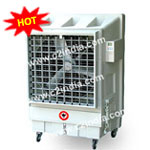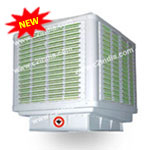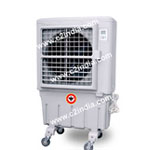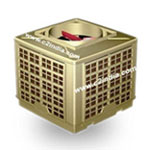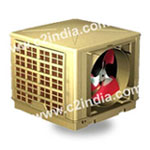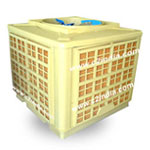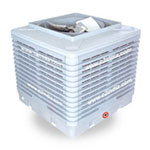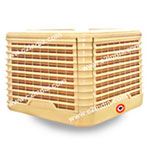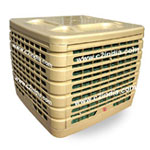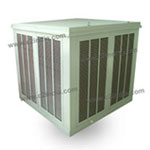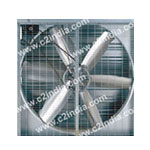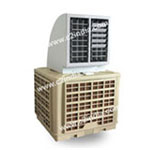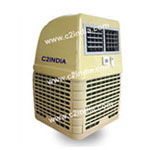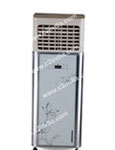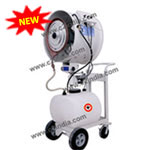Comparison between Evaporative Air Cooler and Conventional Air Conditioner:
|
Evaporative Air Cooling |
Refrigerated Air Conditioning |
|
Uses only 10% of the electricity compared with conventional air conditioner. |
Uses large amounts of electrical power because of compressor. |
|
As temperature rises efficiency of the Evaporative Air Cooler improves. |
As temperature rises efficiency of the air conditioner reduces. |
|
Cooling capacity is only limited by the air conditions. Up to 50KW of cooling can be achieved with only 1 KW of electricity used |
Cooling is limited by theoretical Coefficient of Performance which means a maximum of 3.5 KW of cooling for 1 KW of electricity consumed. |
|
Open doors and windows do not affect performance |
Open doors and windows significantly reduce performance. |
|
Uses no harmful gases for its function. So, Evaporative Air Cooler is Eco-Friendly. |
Uses environmentally harmful gases. |
|
Avoiding relative humidity below 50% significantly reduces static electricity problems |
Leads to low relative humidity which can create high static electricity conditions. |
|
Few moving parts – one fan, one pump and three solenoid valves. |
Many moving parts including complex and expensive components such as the compressor. |
|
Easy and simple to service. |
More difficult and expensive to service. |
|
Always supplies 100% fresh air. |
Only supplies about 15% fresh air. 85% is re-circulated. It is not fresh. |
|
Air is cooled only once. |
Air is cooled many times. |
|
Has no upper limit on temperature. |
High ambient temperatures can lead equipment to shut down due to compressor overload. |
|
Have bigger fans – pump large amounts of air. |
Smaller fans – pump less air. |
|
Provides flow of fresh cool air. |
Provides cool, re-circulated, stale air. |
|
Provides stable relative humidity levels which are more comfortable to work in. |
Can lead to low Relative Humidity which is not comfortable. |
|
Simple to create positive pressure in buildings giving hygiene and control benefits. |
More difficult to create positive pressure with recirculation systems. |
|
Operating costs are low. |
Operating costs are typically high. |
|
An evaporative cooler operates on 240-volt electricity, which means they don’t need special high-voltage circuits. |
Some of the air conditioners require special high-voltage circuits. |

